#pavielle
Text
Can we talk about Harper Anderson winning a full Joffrey (summer - I assume) scholarship! She is slaying the ballet world - so pleased for her ⭐️🩰
15 notes
·
View notes
Text





Tess Holliday | Romper | Pavielle Garcia | April 2021
16 notes
·
View notes
Text
Some Dancers at YAGP Finals:
Ballet Academy of Chapel Hill:
Tinsley Wallace (10)
Ballet Bloch Canada:
Keenan Mentzos (14)
Bayer Ballet:
Chloe Helimets (13)
Jaslyn Kwan (15)
Crystal Huang (15)
Amelia Chen (15)
Cary Ballet Conservatory:
Eric Poor (14)
Concept Pavielle:
Harper Anderson (11)
Club:
Harper Schwalb (10)
Bella Linman (10)
DanceLova:
Charlotte Pham (10)
DKCBA:
Summer Wellman (11)
June Freeman (13)
Kiera Sun (13)
Natalie Kulba (14)
Cayman Lee (14)
Clara Riggs (15)
Lyla Briggs (15)
Izzy Howard (16)
Aimee Choo (17)
Elite Classical Coaching:
Nicholas Du (11)
Angelina Tan (14)
Fort Lauderdale Youth Ballet:
Dylan Custodio (12)
Independent:
Emma Bassel (11)
Jun Lu:
Athena Hu (11)
Larkin:
Savannah Jackson (9)
Isabella Charnstrom (11)
Savannah Manzel (13)
MBA:
Ophelia Thiem (10)
Ellary Day Szyndlar (11)
Victoria Carrillo (11)
Tova Tustin (12)
Channing Dennis (14)
Sabrina Dorsey (15)
Lillian Rossman (15)
Gracie Kirkwood (16)
Chloe Hennessey (16)
Audrey Lyons (17)
Melanie McIntire (17)
Alecia Lucchesi (17)
Sofia Rutova (18)
Parker Rozzano-Keefe (18)
Tyler Cohen (18)
New Level:
Reese Braga (10)
Pittsburgh Ballet House:
Giada Reino (11)
Stars:
Santiago Sosa (13)
Studio 4:
Reese Ottney (11)
The Art of Classical Ballet:
Ashley Demi Otano (11)
Kya Massimino (13)
The Dallas Conservatory:
Maeve Olsen (9)
Georgia Reed (10)
Zoey Reese (12)
Tobias Weber (13)
The Rock:
Jillian Chapler (11)
Crystal Huang (15)
Yoko's:
Isabella Tjoe (13)
Fiona Wu (13)
Xtreme:
Blake Metcalf (13)
15 notes
·
View notes
Text
What I think of variations/spellings of my name
Like: Pavel, Paweł, Pavlo, Paval, Paviel, Pauwel, Pavle, Pavol, Paavali, Pavo, Paavo, Povilas
Not a fan: Pablo, Pavli, Pavlos/Paulus, Paolo
Don't like: Paul. I really don't like Paul…
Pavlo and Paval are especially my favs :) And Paavali…
Boulos, Bulus(Arabic) Boghos, Poghos(Armenian) < this is interesting… I kinda like it
Do you guys like any of your name variations or just one… It must be crazy being named Alex…
19 notes
·
View notes
Text
youtube
Rage for the Machine streaming on all platforms 💜
5 notes
·
View notes
Text
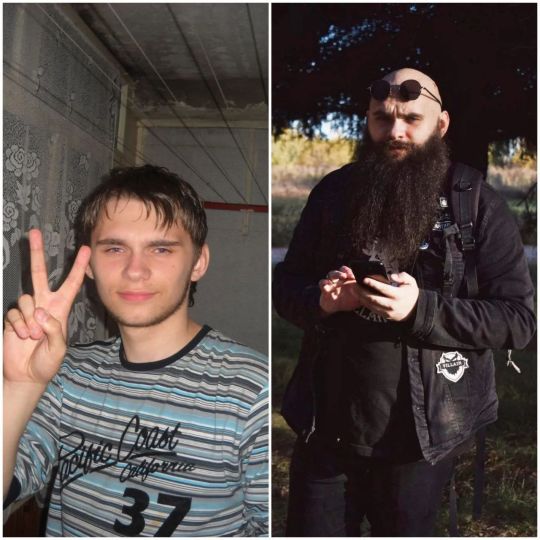
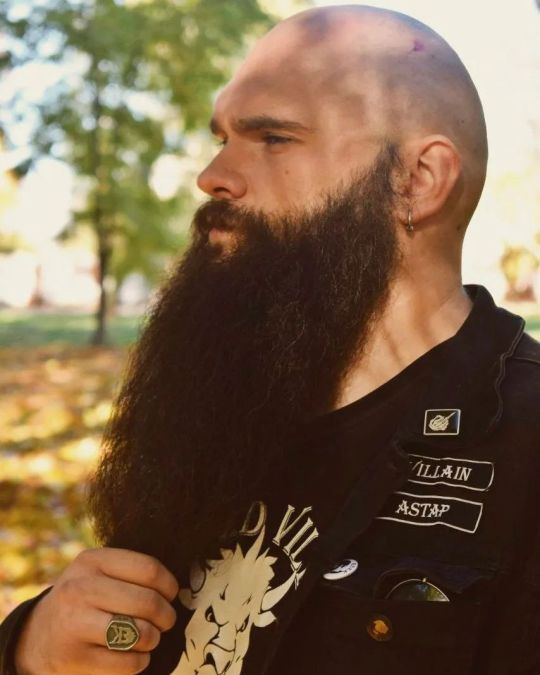
Paviel Astapienko
source: instagram
#ig favourite#beard#big beard#long beard#beardlove#beard growth#beardtransformation#handsome#babyface#beard vs no beard#beardenvy
14 notes
·
View notes
Text
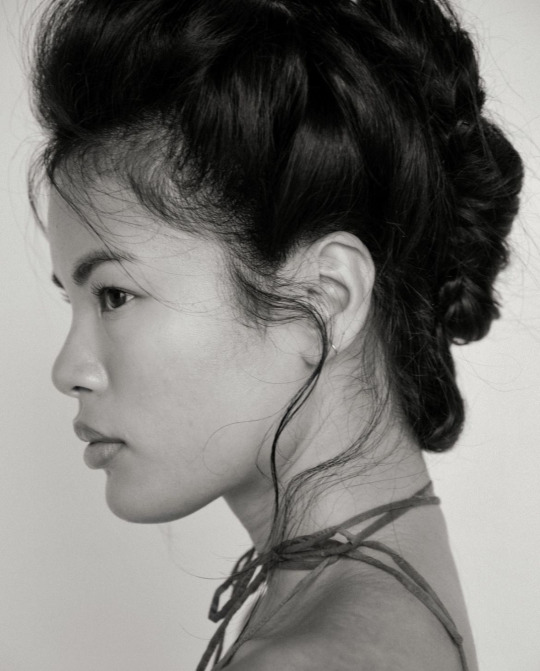
Sandra Diola by Pavielle Garcia
2 notes
·
View notes
Note
the people who quit larkin, where do they end up going?
klaire and carley went to woodbury, harper and siena are focusing on ballet at concept pavielle, and the rest mainly just do dance teams at their high school i think or quit all together lol
2 notes
·
View notes
Text
Sol Fertilis: Ministers
Ministers are the fifty members of the five hundred membered Senate. Like the other Senators, they must be an Elder. In order to become a Minister, an Alpha Elder has to serve in the Ministry for at least a decade before being elected with the staff, mainly other Alphas within that Ministry. Delta Pluses and Beta Pluses are chosen to be Deputy Ministers and Advisers. Their jobs are to make sure that there is order and peace in Sol Fertilis. Some of the Founding Fathers and Mothers are working as Minister currently, such as Cezar Rosário, Srečko Horvat, Takimura Kiwako, and Bérengère Berlioz
Grant McNeil/Senator McNeil- Minister of Interior
Isaac Clements/Senator Clements- Minister of Defense
Karsten Hansen/Senator Hansen- Minister of Finance
Irene Roosevelt/Senator Roosevelt- Minister of Foreign Affairs
Concetta Angelone/Senator Angelone- Minister of Agriculture
Salvianella Phoca/Senator Phoca- Minister of Culture
Usha Chakarvarti/Senator Chakarvarti- Minister of Environmental Protection
Kadeen Haddani/Senator Haddani- Minister of Academia
Srečko Horvat/Senator Horvat- Minister of Health
Cezar Rosário/Senator Rosário- Minister of Industry
Paviel Nedyalko/Senator Nedyalko- Minister of Technology
Bryce Neville/Senator Neville- Minister of Information
Efren Gustavo Sanderson Sardido/Senator Sardido- Minister of Tourism
Yassin Beghal/Senator Beghal- Minister of Labor
Yun Eun-Woo/Senator Yun- Minister of Housing
Takimura Kiwako/Senator Takimura- Minister of Pleasure
Nikos Athanilis/Senator Athanilis- Minister of Justice
Leon Lamarr/Senator Lamarr- Minister of Entertainment
Tusila Seuava/Senator Seuava- Minister of Fertility
Yvonne Petitpas/Senator Petitpas- Minister of Broadcasting
Laimis Pauza/Senator Pauza- Minister of Sports
Myron Nasselis/Senator Nasselis- Minister of Energy
Edmund Malinowski/Senator Malinowski- Minister of Immigration
Innocente Primerano/Senator Primerano- Minister of Religion
Harvey Harrison/Senator Harrison- Minister of Transportation
Euzel Spendlove/Senator Spendlove- Minister of Urban Planning
Moriyama Muneyaki/Senator Moriyama- Minister of Trade
Jean-Luc Grinda/Senator Grinda- Minister of Public Works
Stefanie Hitz/Senator Hitz- Minister of Celebrations & Festivals
Vanida Srisai/Senator Srisai- Minister of Youth
Alfonso Calza/Senator Calza- Minister of Leisure
Hansie Rossouw/Senator Rossouw- Minister of Monitoring
Placido Marchesi/Senator Marchesi- Minister of Pharmaceutical
Mason Gleeson/Senator Gleeson- Minister of Counter-Intelligence
Quartilla Calandra/Senator Calandra- Minister of Postal
Caitlyn Payne/Senator Payne- Minister of Security
Iosif Spanides/Senator Spanides- Minister of Waste Removal
Shaithis Dobre/Senator Dobre- Minister of Machinery
Behnaz Razavian/Senator Razavian- Minister of Forestry
Enéas Pereira/Senator Pereira- Minister of Water
Oier Giménez/Senator Giménez- Minister of Food Regulation
Bérengère Berlioz/Senator Berlioz- Minister of Clothing
Veranika Borushko/Senator Borushko- Minister of Mental Health
Hallbjörn Eyvindur/Senator Eyvindur- Minister of Communication
Jurian van Rhee/Senator Rhee - Minister of Marriage & Family
Viktor Weinheber/Senator Weinheber- Minister of Chemicals
Bronislav Milovan/Senator Milovan- Minister of Droughters
Donagh O'Gorman/Senator O'Gorman- Minister of Sales & Retail
Lihan Goldberg/Senator Goldberg- Minister of Materials
Obediah Blumenfeld/Senator Blumenfeld- Minister of Construction
#government#Sol Fertilis#omegaverse au#dystopian omegaverse#omegaverse#dystopia#dystopic#dystopian#ministers#ministries
2 notes
·
View notes
Note
I think the larkin dancers are allowed to skip ballet camp if they are at another ballet intensive. Like Savannah Manzel is at the bolshoi ballet intensive in New York, and I know Savannah Jackson was just at the ballet clinic in Arizona. Maybe Harper is just doing her ballet at concept pavielle
Aaah, interesting. Ballet Queens
0 notes
Text
Jon's Favorite Photos of 2018
Jon’s Favorite Photos of 2018
Kitten Forever at the Loring

John Maus at the Cedar Cultural Center

Prairie Fire Lady Choir at the Cedar Cultural Center

Khruangbin at the Turf Club Ty Segall at First Avenue

Royal Brat at the Loring

Sudan Archives at First Avenue

Low & Marijuana Deathsquads at First Avenue

Izell Pyramid at the Turf Club

Doomtree at La Familia Skate Shop

Condominium at the Turf Club
View On WordPress
#behm#best#doomtree#Izell Pyramid#john maus#Khruangbin#Kitten Forever#low#pavielle#prairie fire lady choir#Royal Brat#Sudan Archives
1 note
·
View note
Photo
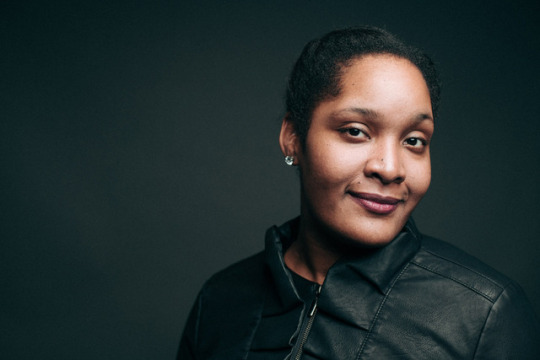
ArcStone Technologies, a digital agency in Minneapolis, will be hosting a monthly concert series from July 6 to Nov. 6. The series kicks off with artists David Huckfelt and Adam Levy, with other artists including PaviElle, Gaelynn Lea, Chris Koza, Ben Lubeck, and the Hunts.
details
7 notes
·
View notes
Photo

Donald Glover photographed by Pavielle García at home (2020)
36 notes
·
View notes
Link
via Politics – FiveThirtyEight
Every election is followed by an attempt to explain its outcome. One of the more common explanations of the 2016 presidential election was that Hillary Clinton lost because she relied on “identity politics.” So we were curious: Would white Democrats be inclined to choose a different type of 2020 candidate if they were told that Clinton’s 2016 loss was caused by identity politics? We conducted a survey to find out, and the short answer is yes, but with one big caveat: While women’s preferences shifted substantially, men’s views remained largely unaltered.
The identity politics argument, as explained by political scientists like Mark Lilla and Francis Fukuyama, is that Clinton’s appeals to groups like women, people of color and the LGBT community left white working-class men feeling alienated from and unappreciated by the Democratic Party. They responded by voting for Donald Trump, whose identity-based appeals were directed at them. A message that focused on universal economic gains, rather than the needs of marginalized communities, the argument goes, would have allowed Clinton to win. Of course, others have argued that Clinton could have won more votes by making more explicit appeals to African American voters, who did not turn out in at as high a rate as they did when Barack Obama was on the ballot in 2012 and 2008.
These sorts of post-election narratives can be very powerful, regardless of whether they’re actually true. As political scientist Marjorie Hershey notes, they can affect the lessons people draw from an election and how they approach future contests. So we were interested in better understanding how the identity-politics explanation for Clinton’s loss might affect white Democratic voters. After all, many candidates are trying to court white Democrats for the 2020 election, and the identity politics narrative may have a unique appeal for white voters (particularly men) because it implies that their preferences should take precedence over those of marginalized groups. Could attributing Clinton’s loss to identity politics make these voters change what type of candidate they prefer in the next presidential election?
To find out, we surveyed 845 white Democrats.1 In our study — which has not yet been published in a peer-reviewed journal, though the preliminary findings have been shared at a recent conference of the Midwest Political Science Association — we showed half the respondents a fictitious newspaper clipping that said Democrats lost the 2016 election and failed to take the Senate in 2018 because the party focused too much on identity politics and didn’t address universal issues like the economy.2 The other half of the respondent group was shown a clipping about Democratic disappointments in 2016 and 2018 that did not reference identity politics.3 We then asked respondents why they thought Democrats lost in 2016 and had them participate in something called a conjoint study, which asked respondents to choose between two hypothetical Democratic 2020 candidates, randomizing for gender, race and ideology, in a series of trial heats.
The findings were telling. Among those who weren’t shown the story about identity politics, men were more than twice as likely as women to believe that identity politics caused Clinton’s loss. But reading the identity politics story seemed to have little effect on men, who believed that explanation for Clinton’s loss in about equal numbers whether we showed them the identity-politics story or not. Among women, on the other hand, there was a dramatic difference between those who were shown the story blaming identity politics and those who were not — those in the first group were more than twice as likely to blame identity politics for the loss.
We also found large effects on women’s choices for the type of candidate they wanted to see as the Democratic nominee in 2020. Women in the study who were not shown the identity-politics narrative were more likely — by 11 percentage points — to choose female candidates over male candidates. But women who were shown the identity-politics story chose female candidates at a lower rate — they were just 6 points more likely to choose a female candidate over a male.
And when we asked respondents whether they wanted a candidate who was focused on generalist efforts to build a strong economy versus one who wanted to ensure fairer prison sentences for nonviolent criminals, one who was committed to addressing discrimination in the workplace, or one who wanted to reduce racial discrimination in criminal sentencing, we found that women who were shown the identity politics narrative were substantially more likely to prefer an economically oriented candidate. Among women who weren’t shown the identity politics story, candidates focused on shorter sentences for nonviolent offenders were at an 8-point disadvantage compared with those focused on the economy. That grew to a 15-point loss among women who saw the identity-politics clip.
Similarly, among women who read the identity-politics story, support for candidates focused on fair sentencing for people of color was 10 points lower than it was among those who hadn’t read the identity-politics story. And perhaps most strikingly, candidates focused on fair employment for women and people of color lost 11 points of support relative to those focused on the economy after respondents saw the identity-politics narrative.
We found no statistically significant shifts in men’s candidate preferences. One reason women might be disproportionately likely to change the way they think about the next election cycle is that gender norms call on them to be accommodating, and those norms influence people’s political decision-making.
While we will be examining these effects further, the preliminary results strike us as important for understanding the current invisible Democratic primary: Quite a few Democratic leaders believe it’s important to increase the gender, racial and ethnic diversity of political representatives, as it helps ensure that a wider range of voters will have their experiences and interests represented. Yet, as our study found, a non-trivial portion of the electorate can be easily dissuaded from pursuing this goal when told it could cause an electoral loss.
It’s also a reminder that the divisions we saw among Democrats in 2016 are still very much present, and arguably even more potent today. Interpreting the 2016 election will be central to the way voters, activists and candidates think about 2020. And the dominant narrative of why Clinton lost will likely shape what the next nominee will look like.
1 note
·
View note
Photo
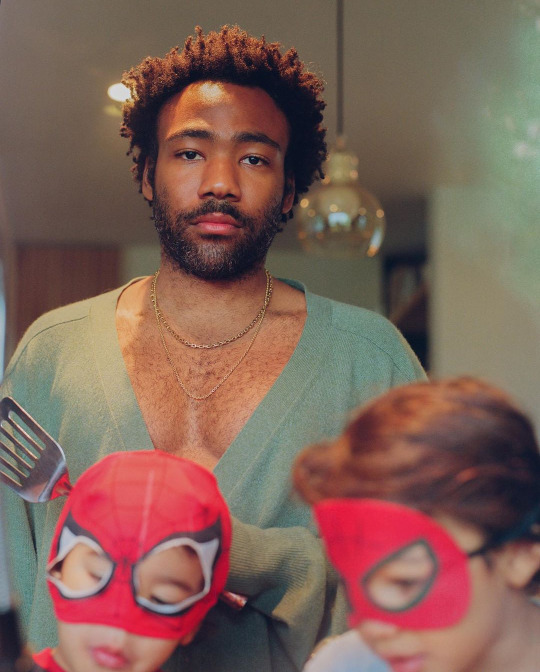
Childish Gambino, 2020
photo by Pavielle Garcia
33 notes
·
View notes